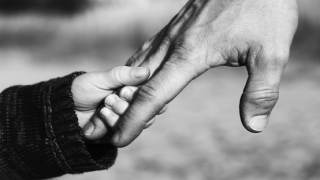Removing children from ‘extremists’ could include Christians

Tim Dieppe discusses the statement from the UK’s top counter terrorism officer that 'extremists should lose access to their children'. He explains that ‘extremism’ is notoriously hard to define, and that in a recent case a Christian teacher was described as a ‘radicalisation threat’ and referred to Prevent for her beliefs. There are already cases in the UK where children have been removed from their Christian parents. Children are at risk from the increasing intervention of the state and Christians need to be actively involved in influencing the law.
A headline in The Times this week read: “Extremists should lose access to their children, says Scotland Yard chief.” The Times was reporting on a speech made by Mark Rowley, the UK’s top counterterrorism officer, at Policy Exchange this week. Mr Rowley is reported to have claimed that “exposing children to extremism was ‘equally wicked’ as exposing them to sexual abuse.” In the speech he argued: “I wonder if we need more parity between protecting children from paedophile and terrorist parents.” He said that around 100 children have been removed from their parents since the start of conflicts in Syria and Iraq, but he clearly expressed that he thought more children should be safeguarded by the state.
What is extremism?
Clearly the focus of Mark Rowley’s attention is terrorism. Both far-right and Islamist terrorist attacks are discussed in the speech. However, this is not his only concern. He complains in the article of “cases where parents convicted of terrorist-related offences, including radicalisers, retain care of their own children.” The phrase “including radicalisers” is very concerning. Tommy Robinson is named alongside Anjem Choudary as an example. Anjem Choudary has been convicted of supporting a terrorist organisation and is now in prison. Whilst Tommy Robinson may have said and done some things that I would not support, I am not aware that he has ever advocated terrorism or joining a terrorist organisation. Should he really have his children removed from him?
Mr Rowley added that there had been times when Britain was “tolerant of intolerance”. This is another alarming phrase. Just what is meant by ‘intolerance’? Does it include the freedom to criticise another person’s religion, worldview, or lifestyle? Mr Rowley is clearly advocating removing children, not just from those convicted of terrorism, but from ‘radicalisers’ and perhaps others deemed ‘intolerant’.
The Prevent definition
The difficulty here is that ‘extremism’ is notoriously hard to define. In the Prevent strategy, extremism is defined as:
“vocal or active opposition to fundamental British values, including democracy, the rule of law, individual liberty and mutual respect and tolerance of different faiths and beliefs. We also include in our definition of extremism calls for the death of members of our armed forces.”
The difficulty here is what is meant by “respect and tolerance of different faiths and beliefs.” It would be better to say: “respect and tolerance of different people.” Not all faiths and beliefs are worthy of respect. In particular, belief in using terrorism to change society is not a respected belief and should not be a respected belief. Neither should racism be a respected belief, and I could multiply more examples. People should be free to criticise other beliefs and behaviours in the strongest terms without risking being labelled as an ‘extremist’.
There is also some vagueness about what constitutes ‘British values’. ‘Equality’ is usually listed as one of these values, and this can mean that not promoting same-sex ‘marriage’ is viewed as ‘anti-equalities’. Dame Louise Casey said as much in parliament. Ofsted has also criticised Christian schools for “not promoting British values effectively enough.” The then education secretary said 2015 that children who speak out against homosexuality could be viewed as potential extremists.
Christian teacher a “radicalisation threat”
Only last month, in one of our cases, a Christian teacher was reported as a “radicalisation threat” to the government’s anti-terrorist organisation, Prevent. Her ‘radical’ view was stating her personal belief that homosexuality is against God’s will in response to students’ questions. She was dismissed from her job, and the Employment Tribunal found against her. This demonstrates how ordinary Christians can be viewed as ‘radical’ or ‘extremist’ by authorities in society. Under Mr Rowley’s proposals, she would also have her children removed from her.
Children removed from Christian parents
In fact, we have already seen children removed from parents. Christian Concern helped with a case in 2016 in which four children were removed from their Christian parents. In another case, two adopted sons were removed from Christian parents after living with them for nearly four years. The boys were removed from the children immediately after the boys made allegations to the school. The parents have had no contact from that day to this.
In Norway, five children were removed from a Christian family and placed in three different foster homes because the social services did not agree with the children’s Christian upbringing. Just last month in Cincinnati, a teenage girl was removed from her parents by the state after the parents refused to call their daughter a boy or to give her hormone therapy to make her like a boy.
Christians blocked from fostering
An alarming High Court ruling in 2011 stated that Christian beliefs on sexual ethics may be ‘inimical’ to children and upheld the view that children risk being ‘infected’ by Christian moral beliefs. This related to foster parents who were blocked from fostering because they were unwilling to promote homosexuality to a young child.
Children at risk
Our children are at risk. They need protecting. The state is becoming increasingly intolerant of Christian beliefs and interventionist in its stance. Families are being torn apart. This shows the importance of campaigning for Christian influence in the law. We are in a battle that we cannot avoid. There is no neutrality. The stakes could hardly be higher.
